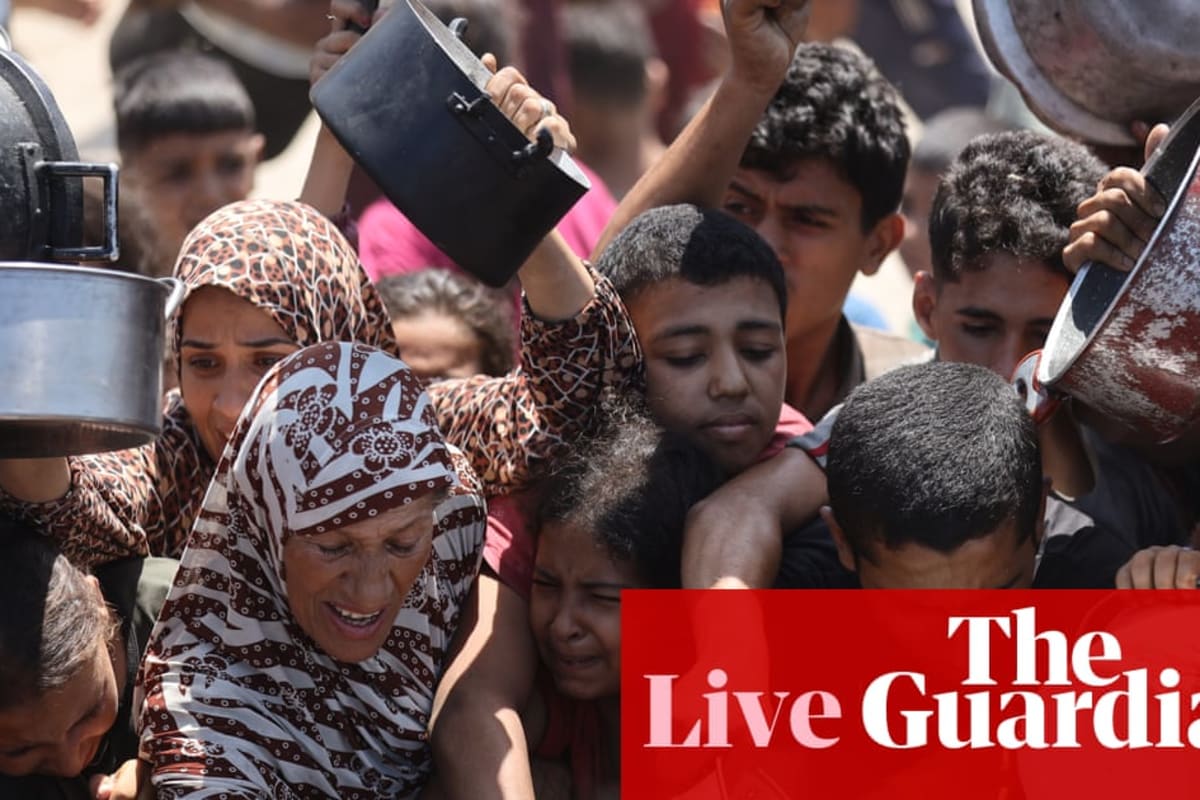Gaza Faces Catastrophic Famine, UN Warns The ongoing conflict in Gaza has plunged the territory into a catastrophic humanitarian crisis, with the United Nations World Food Programme (WFP) officially declaring a widespread famine This dire assessment, confirmed following a recent visit by WFP Director Cindy McCain, highlights the urgent need for immediate international intervention to avert widespread death and suffering McCain, in a statement to the Associated Press, described the food shortages as "very evident" and emphasized that "starvation is clearly underway.
Her observations align with the Integrated Food Security Phase Classification (IPC)'s declaration of famine last Friday – a critical alert indicating that widespread death due to starvation is imminent without immediate and substantial intervention "The situation is beyond dire. We need immediate and sustained access to get food to the people who desperately need it," McCain stated, underscoring the urgency of the situation.
The severity of the crisis is exacerbated by the devastation of Gaza's already fragile infrastructure and economy, crippled by years of blockade, internal political instability, and the current conflict These pre-existing vulnerabilities have made the population exceptionally susceptible to the devastating impact of the ongoing war The near-total cessation of commercial activity, compounded by the extensive damage to vital infrastructure, including storage facilities, transportation networks, and water and sanitation systems, has severely hampered the distribution of food and other essential supplies For Southeast Asian readers, this crisis carries significant international implications Many Southeast Asian nations, known for their humanitarian contributions, are actively involved in providing aid and support to international relief organizations Understanding the scale of the devastation in Gaza can inform and potentially motivate even greater regional engagement in providing critical humanitarian assistance The crisis also serves as a stark reminder of the devastating consequences of protracted conflicts and the fundamental importance of international cooperation in addressing humanitarian emergencies The ripple effects of the Gaza crisis extend beyond the immediate region, impacting global stability and highlighting the interconnectedness of the international community McCain's discussions with Israeli Prime Minister Benjamin Netanyahu regarding increased food access to Gaza represent a crucial first step toward mitigating the crisis However, the success of these negotiations hinges on the complex geopolitical dynamics of the region and, critically, the willingness of all involved parties to prioritize humanitarian imperatives above political considerations The international community must exert sustained and robust pressure to ensure unhindered access to food, water, medical supplies, and other life-saving aid The escalating food crisis is not merely about hunger; it signifies a broader collapse of essential services across Gaza Severe water scarcity, inadequate sanitation infrastructure, and a near-complete breakdown of the healthcare system are compounding the suffering of the civilian population Children, the elderly, and other vulnerable groups are disproportionately affected, facing heightened risks of malnutrition, disease outbreaks, and mortality Addressing this multifaceted humanitarian crisis requires a comprehensive, multi-pronged approach that extends beyond simply supplying food aid It necessitates the provision of clean water, urgently needed medical supplies, the rehabilitation of damaged infrastructure, and the restoration of essential services Furthermore, psychological support for those traumatized by the conflict is vital The international community now faces the critical challenge of translating these grim warnings into concrete and impactful action This demands not only substantially increased funding for experienced and reputable humanitarian organizations operating in the region but also a sustained and concerted diplomatic effort to secure safe, consistent, and unimpeded access for aid delivery to the people of Gaza A monitoring mechanism is also crucial to ensure aid reaches those who need it most The longer the conflict continues, the greater the risk of widespread death, irreversible damage to the region's human capital, and long-term destabilization The international community must act decisively and swiftly to avert a complete humanitarian catastrophe of unimaginable proportions Responding effectively to the crisis necessitates several critical and immediate steps: Immediate and Substantial Increase in Humanitarian Aid: Scale up the delivery of food, water, medical supplies, and other essential items Guaranteed Safe Passage for Aid Delivery: Establish a secure and reliable corridor for humanitarian organizations to reach those in need without fear of attack Long-Term Investment in Infrastructure Rebuilding: Commit to rebuilding Gaza's damaged infrastructure, including hospitals, schools, and sanitation systems Robust Diplomatic Effort: Intensify diplomatic efforts to achieve a peaceful and sustainable resolution to the conflict The world cannot afford to stand idly by while a humanitarian disaster of this magnitude unfolds before our eyes The international community's response will serve as a crucial test of its commitment to upholding humanitarian principles and its capacity for effective collective action in the face of grave crises The long-term consequences of inaction will be far-reaching and deeply damaging, not only for the people of Gaza but also for regional stability and global security The time for decisive action is now

